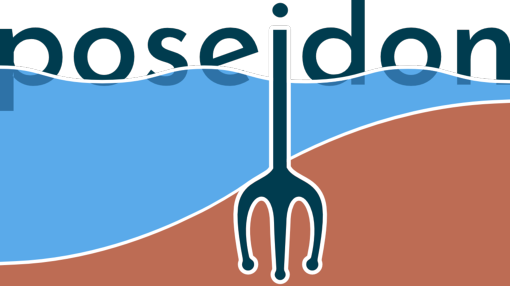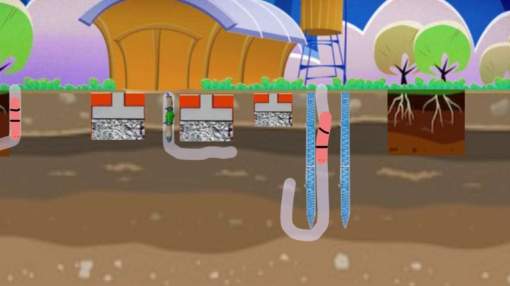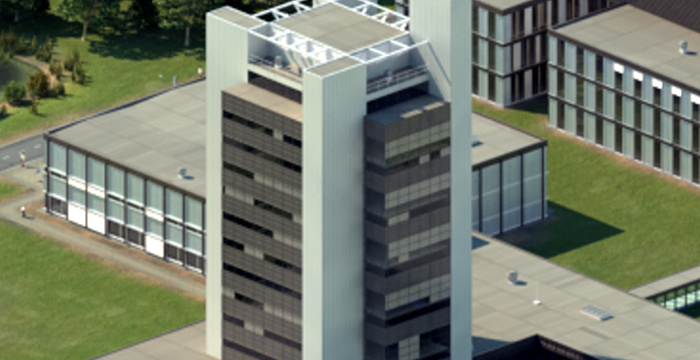I am Adjunct Professor of Soil MicroMechanics at the Faculty of Engineering Technology.
My research interests are primarily in the area of theoretical analysis and modern simulation techniques applied to constitutive modeling of materials with an internal micro-structure such as soils. I am interested in the use of advanced optimization techniques to improve soil performances and mitigate natural hazards.
Within CME, the chair of Soil MicroMechanics combines fundamental soil mechanics and applied research, with focus on novel technologies for improvement of construction (earth) materials and processes, in the spirit of SMART soils.
Since 2016, I am chairing the Female Faculty Network Twente https://www.utwente.nl/en/ffnt/
Organisations
Publications
2026
2025
2024
Research profiles
Affiliated study programs
Courses academic year 2025/2026
Courses in the current academic year are added at the moment they are finalised in the Osiris system. Therefore it is possible that the list is not yet complete for the whole academic year.
- 195419999 - CEM Master Thesis Water
- 195459999 - CEM Master Thesis Construction
- 195799152 - Internship
- 195899999 - CME Master Thesis
- 201800116 - Preparation Master Thesis
- 202000090 - BSc Research Assignment
- 202000250 - Internship
- 202400790 - Structural Mechanics 2
- 202500297 - CEM Master Thesis HGS
- 202500455 - Geotechnical Modelling
Courses academic year 2024/2025
- 191199154 - Internship
- 195419999 - CEM Master Thesis Water
- 195459999 - CEM Master Thesis Construction
- 195799152 - Internship
- 195899999 - CME Master Thesis
- 201800116 - Preparation Master Thesis
- 201800519 - Research assignment for exchange
- 202000090 - BSc Research Assignment
- 202000250 - Internship
- 202400753 - Advanced Soil Mechanics
- 202400790 - Structural Mechanics 2
Here a list of projects I am working on. If you are intersted and want to learn more, conatct me. I will be happy to shear information and discuss new exciting ideas.
Current projects

TUSAIL
Training in Upscaling particle Systems: Advancing Industry across Length-scales
The overarching objective of TUSAIL is to train 15 creative, entrepreneurial and innovative Early Stage Researchers (ESRs) in developing, applying and validating novel methodologies for upscaling of particulate systems across the length-scales and this way to help advance the innovation capacity in European industry. This will deliver a cohort of experts in upscaling techniques able to eliminate industry’s reliance on traditional, costly pilot plants and thereby enhance European competitiveness, reducing risks and saving valuable resources. TUSAIL will start in March 2021, with 15 PhD positions open across Europe.

POSEIDON
Improve offshore infrastructure resilience against geohazards towards a changing climate
POSEIDON is a MSCA Doctoral Network project funded by EU. It brings together an interdisciplinary and intersectorial team to deliver a professionally trained next-generation network of Doctoral Candidates to develop a step change in our capacity to identify, map, assess and predict offshore geohazards and in turn produce ground-breaking methods to prevent, mitigate and boost the resilience of current offshore infrastructure under a changing climate. The consortium is formed by experts across EU countries with universities, research institutions, industry partners and a government body to cover a full training programme on scientific and transferable skills.

Bio-inspired burrowing robot for soil penetration in limited-access sites
The project is funded by NWO, under the Open Competition Domain Science Scheme
Global warming is changing the landscape around us and threatening our safety. Groundwater level fluctuations affect the soil integrity, leading to severe subsidence in the Netherlands, foundation instability and structural damages. Current underground remediation techniques are expensive and ineffective. An innovative selfburrowing robot is proposed to investigate soil and monitor foundations. Bio-inspired by the earthworm movement, the robot burrows in soil with minimum disturbance. Instrumentation allows for continuous foundation examination, soil characterization and local grouting injection. At the same time, the acquired data can be back-engineered as feedback to guide the robot advancement.
Finished projects
ReGrOUP
Rock Physics and Geomechanical ConstRains for OverpressUre Prediction
The project investigates Wave propagation in granular soils (dry and saturated conditions) via Discrete Element Simulations. ReGroup involves a collaboration between UTwente, ENI and Università di Pisa
Soft Seismic Shields
Engineering smart soils to protect buildings
Since centuries our society pays a heavy toll of dead and damages for earthquakes. Their mitigation poses still formidable challenges to engineers and scientists. Recent construction codes allow to build safe newbuildings. But cost of works is still too high. For structures of historical and architectural relevance that pose tighter constrains to retro-fitting, intervention on the building is often impracticable. In this project we reverse the approach and propose, as mind-changer, to engineer soils into active Soft Seismic Shields against earthquakes.
GREENSED
GREen ENgineering solutions for SEDiments
Million m3 of sediments are dredged annually in Europe and disposed as waste, with enormous environmental impacts. GREENSED aims at developing cutting-edge treatments for sediments, using byproducts from local economy. Wastes will be converted into bysed-ment, an innovative building material, functional to support the sustainable development of our society. The project is funded by NWO within the IdeaGenerator call. GREENSED will start on 1st January 2021, in close collaboration with Politecnico di Bari.
T-MAPPP
Training in Multiscale Analysis of MultiPhase Particulate Processes and Systems
Address

University of Twente
Horst Complex (building no. 20), room Z210
De Horst 2
7522 LW Enschede
Netherlands
University of Twente
Horst Complex Z210
P.O. Box 217
7500 AE Enschede
Netherlands